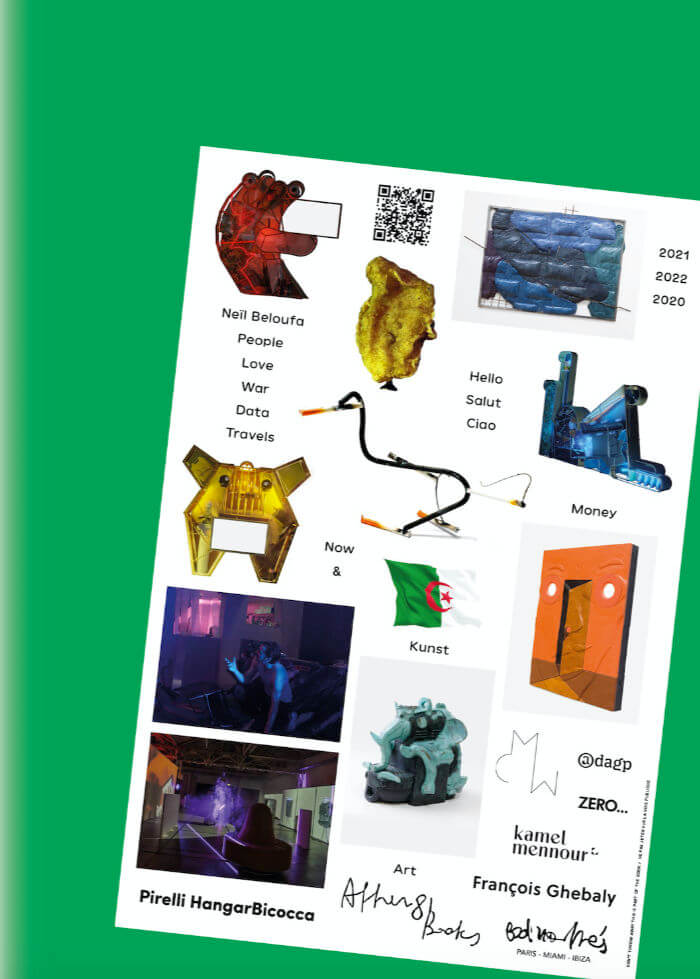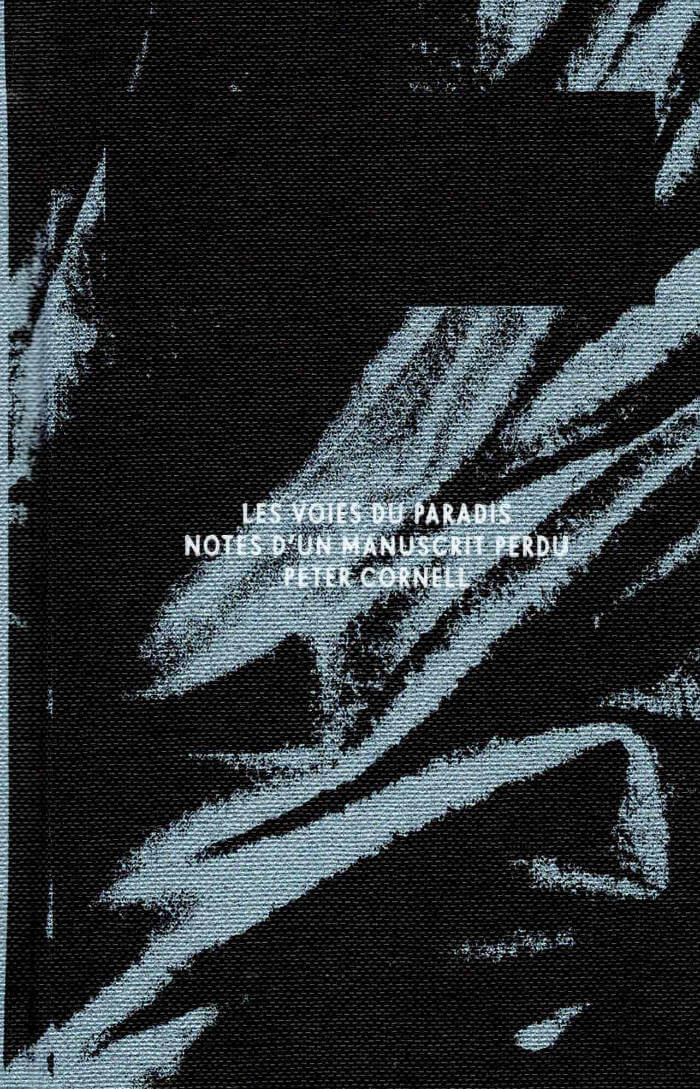
Neïl Beloufa: People Love War Data & Travels
Myriam Ben Salah ed., Benjamin Thorel ed.
This is the first monograph on the internationally acclaimed French Algerian artist Neïl Beloufa (born 1985). Love, hatred, war, technology, social unrest, bodies and words in crisis: this is the material of which Beloufa’s work is made. His films, sculptures and multimedia installations audaciously explore how art can address today’s issues, challenging contemporary representations of social relationships, power games, and political and economic structures. An artist favoring collaborations over authorship, and responsive strategies over predetermined intentions, Beloufa has invented his own work methods, and a particular approach to the studio.
The catalog presents the artist’s projects over the past 12 years, including recent experiments with online platforms and NFTs; it takes as its starting point Beloufa’s solo show, Digital Mourning, at Pirelli HangarBicocca in Milan, and offers a non-conformist take on the genre of the monograph, thanks to Olivier Lebrun’s playful and inventive book design.
Beloufa’s work has been exhibited at the ICA, London; Palais de Tokyo, Paris; the Hammer Museum, Los Angeles; MoMA, New York; Schinkel Pavilion, Berlin; Schirn Kunsthalle, Frankfurt. He took part in the Venice Biennale in 2013 and 2019. His work is present in public and private collections including the Centre Pompidou, Paris; Museum of Modern Art, New York; Sammlung Goetz, Munich; and Julia Stoschek Collection, Düsseldorf & Berlin.
He is represented by François Ghebaly (Los Angeles / New York), Mendes Wood DM (Sao Paulo / Brussels / New York), kamel mennour (Paris / London), and Zero… (Milan).
Language: English







